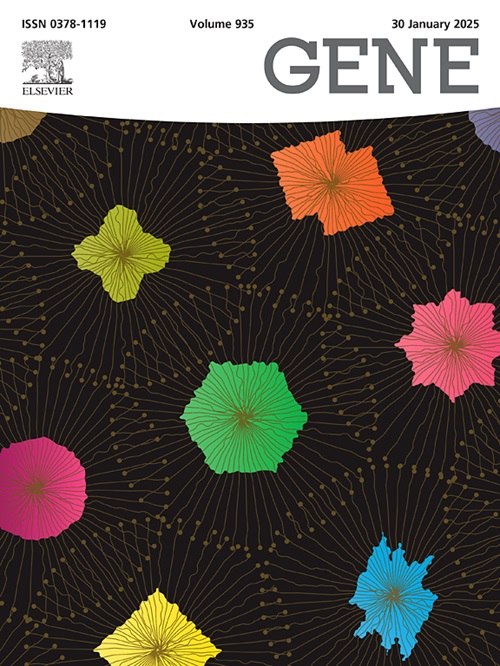Hyperglycaemia-induced fibrotic and inflammatory gene expression alterations in lung epithelial cells: Implications for pulmonary fibrosis development
IF 2.6
3区 生物学
Q2 GENETICS & HEREDITY
引用次数: 0
Abstract
Hyperglycaemia has a significant long-term impact on multiple organ systems, including renal, cardiovascular, central nervous, hepatic and ocular systems, leading to the gradual loss of their functional abilities. Numerous studies have elucidated the pathophysiology, etiology, and consequences of hyperglycaemia on these organs. The pulmonary system is also considered as a target of hyperglycaemia, several factors cause lung injury which leads to the development of pulmonary fibrosis, a chronic fibrotic disease with usual interstitial pneumonia patterns. Nevertheless, the effects of hyperglycaemia on the development of pulmonary fibrosis remain poorly understood. We intend to understand the cellular and morphological changes, and the progression of fibrosis in lung epithelial cells subjected to hyperglycaemia. Our experimental data indicate that hyperglycaemia induces fibrotic and inflammatory alterations in cultured lung epithelial cells. These alterations are facilitated by the upregulation of genes related to fibrosis and inflammation, promoting cell proliferation and migration. Further research is required to comprehensively elucidate the impact of hyperglycaemia during lung injury progression of fibrosis, these findings may reveal novel mechanisms that may help in the assessment and treatment of lung ailments in people with hyperglycaemia.
高血糖诱导的肺上皮细胞纤维化和炎症基因表达改变:对肺纤维化发展的影响
高血糖对多个器官系统,包括肾脏、心血管、中枢神经、肝脏和眼部系统有长期的重大影响,导致其功能逐渐丧失。大量研究阐明了高血糖对这些器官的病理生理学、病因学和后果。肺部系统也被认为是高血糖的目标,多种因素会造成肺部损伤,导致肺纤维化的发生,这是一种慢性纤维化疾病,具有常见的间质性肺炎模式。然而,人们对高血糖对肺纤维化发展的影响仍然知之甚少。我们希望了解高血糖下肺上皮细胞的细胞和形态变化以及纤维化的进展。我们的实验数据表明,高血糖会诱导培养的肺上皮细胞发生纤维化和炎症性改变。纤维化和炎症相关基因的上调促进了这些改变,并促进了细胞的增殖和迁移。要全面阐明高血糖在肺损伤纤维化进展过程中的影响,还需要进一步的研究,这些发现可能会揭示新的机制,有助于评估和治疗高血糖患者的肺部疾病。
本文章由计算机程序翻译,如有差异,请以英文原文为准。
求助全文
约1分钟内获得全文
求助全文
来源期刊

Gene
生物-遗传学
CiteScore
6.10
自引率
2.90%
发文量
718
审稿时长
42 days
期刊介绍:
Gene publishes papers that focus on the regulation, expression, function and evolution of genes in all biological contexts, including all prokaryotic and eukaryotic organisms, as well as viruses.
 求助内容:
求助内容: 应助结果提醒方式:
应助结果提醒方式:


